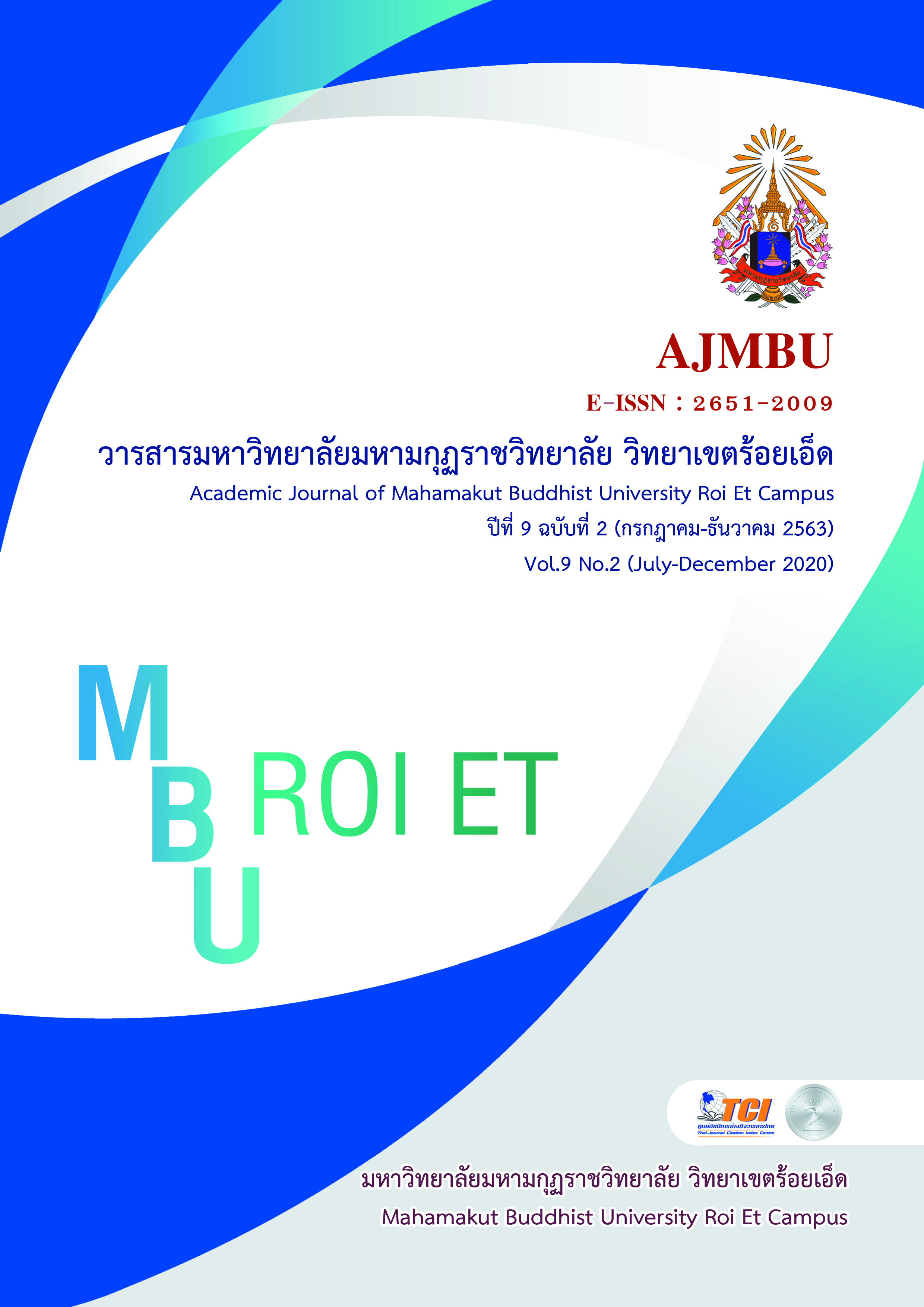Development of Experience Management Patterns to Improve Language Skills and Knowledge Management Ability of Kindergarten Students in Year 2
Main Article Content
Abstract
The objectives of the research were to 1) study and analyze information about language skills and the ability to seek knowledge,2) develop a model of experience to develop language skills and abilities,3) try to form the experience to develop language skills and the ability to seek cooperation,4) to evaluate the effectiveness of using the model to develop language skills, experience and capabilities in acquiring knowledge of students from Kindergarten to Year. The subjects in this study were 28 preschool children aged between 4-5 years at Thetsaban Wat Hua Khuang School, Phrae Province. The research instruments were the language skill test of preschool children.
The results showed that : 1. patterns of experience to develop language skills, and the ability to seek the knowledge of students, kindergarten year 2 teaching activities with step-by-step and clear include: 1)Stimulus 2)Plan 3)Active Learning 4) Repeat 5)Constructivism 6)Application. The experience, to improve their language skills, and the ability to seek the knowledge of students, kindergarten year 2 based on the opinions of experts in the appropriate level of extreme. 2. Form the experience to develop language skills and the ability to seek knowledge of students from Kindergarten to Year 2 in the opinions of teachers, early childhood teachers working in the classroom of children between the ages of 4-5. years is appropriate in the most extreme levels. 3. Early childhood language skills and the ability to seek increased after receiving the learning activities based on the concept of the experience to develop language skills, and the ability to seek the knowledge of students, kindergarten year 2 statistically significant at the .05 level. 4. Evaluation of the pattern of experiences to develop language skills and the ability to seek knowledge of students from Kindergarten to Year 2 with the objective of following sub listening skills, verbal skills, reading skills, writing skills and the ability to seek knowledge of early childhood that has been experienced by the pattern of experiences to develop language skills and the ability to seek knowledge of students from Kindergarten to Year 2 before and after the experience accordingly. layout experience to develop the language skills of students from Kindergarten to year 2 were found to be significantly different at the statistical level. 05 shows. The ability to seek after knowledge of early childhood experiences have been organized by the pattern of experiences to develop language skills and the ability to seek knowledge of students from Kindergarten to Year 2 classes higher. The students have the ability to increase knowledge of early childhood.
Article Details
References
เยาวพา เดชะคุปต์. (2542). กิจกรรมสำหรับเด็กก่อนวัยเรียน. กรุงเทพมหานคร : แม็ค.
เยาวรัตน์ สิงหาราโท. (2552). การพัฒนาความสามารถทางภาษาของนักเรียนชันอนุบาลปีที 1 โดยใช้นิทานพื้นบ้านของจังหวัดชัยภูมิ. วิทยานิพนธ์การศึกษามหาบัณฑิต สาขาวิชาหลักสูตรและการสอน. บัณฑิตวิทยาลัย : มหาวิทยาลัยมหาสารคาม.
ราศีทองสวัสดิ์. (2541). อนุบาลศึกษาการพัฒนาเด็กแห่งศตวรรษที่ 21 ในเอกสารประกอบการอบรมผู้บริหารและครูผู้สอนระดับก่อนประถมศึกษาระหว่างวันที่ 25-26 สิงหาคม 2541. กรุงเทพมหานคร : สำนักงานการประถมศึกษากรุงเทพมหานคร.
วรนาท รักสกุลไทย. (2537). หลักการจัดการศึกษาระดับก่อนประถมศึกษา. รักลูก. 6. 170-175.
Driscoll, M. P. (1994). Psychology of learning for instruction. Allyn & Bacon.


